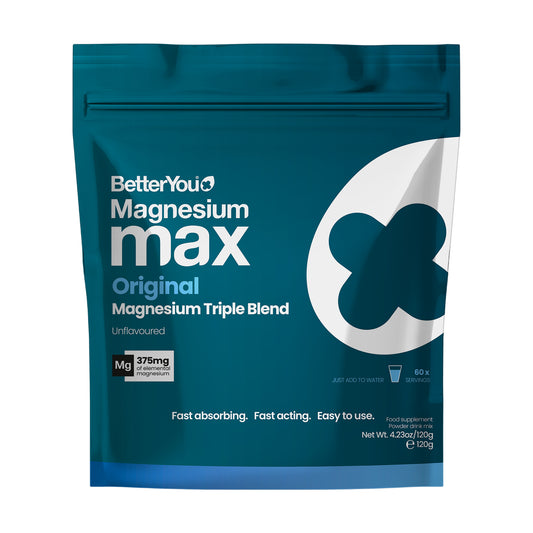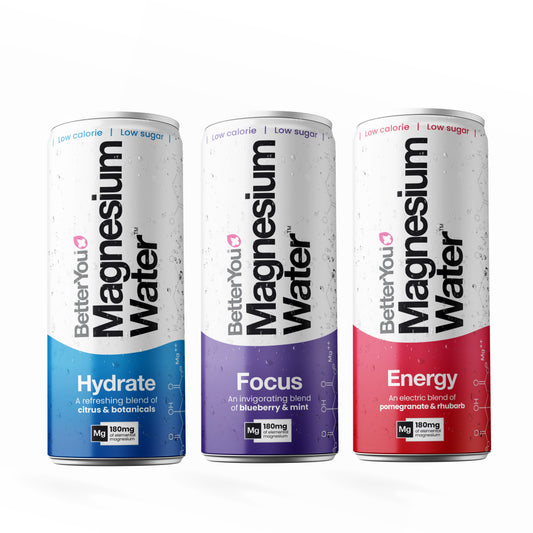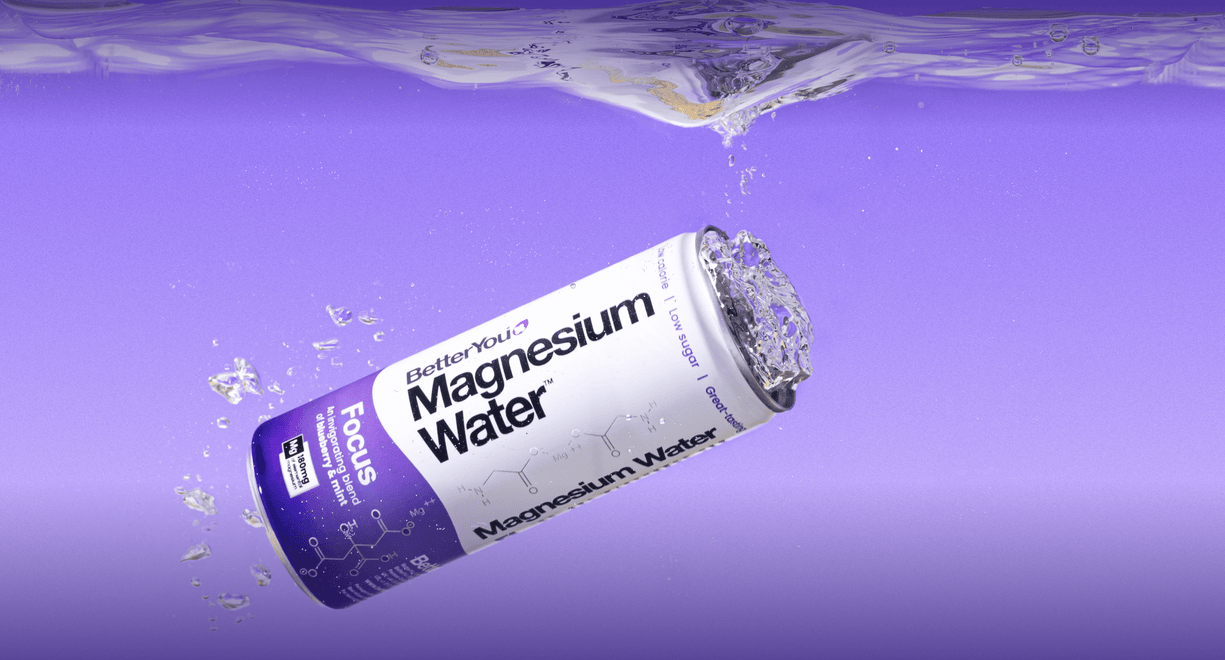Magnesium glycinate is a form of magnesium that can be taken as a supplement in order to increase your mineral intake. This mineral is an essential electrolyte, which provides important functions within the body. See the benefits, how to take it, and how much you need with our guide.
Table of Contents:
- What is Magnesium Glycinate?
- 6 Benefits of Magnesium Glycinate
- Magnesium Glycinate Supplements
- How Much Magnesium Per Day?
What is Magnesium Glycinate?
Magnesium glycinate is an active ingredient found in magnesium supplements. It contains both magnesium and the amino acid glycine. Magnesium glycinate has the chemical formula C4H8MgN2O4 and is very bioavailable. This means it can be absorbed by the body easily.
Magnesium glycinate is a form that can be used in drinkable magnesium supplements to support your levels of this essential mineral. Magnesium is the fourth most abundant element within your body, and so it is vital to maintain recommended levels. Magnesium drinks can help to ensure you see the benefits of the mineral and avoid side effects that come with low levels.
6 Benefits of Magnesium Glycinate
Magnesium glycinate offers many benefits to the body. The benefits of magnesium vary depending on the form of magnesium you supplement, such as glycinate, citrate, or chloride. The benefits of magnesium glycinate may include:
- Supporting sleep and relaxation - This is because magnesium helps to regulate your gamma-aminobutyric acid (GABA) levels. This is an amino acid which helps to signal to your brain when it is time to wind down for sleep. By maintaining healthy levels of GABA, magnesium supplements could help you sleep better.
- Soothing PMS symptoms - Due to the mineral’s role as a muscle relaxant, taking magnesium glycinate could help to soothe the muscle tension which is a common symptom of the menstrual cycle. Some studies show that taking magnesium and B6 during the menstrual cyle helped to reduce the severity of PMS symptoms.
- Easing muscle tension - Magnesium relaxes your muscles and controls their contractions, it also helps to lessen the build-up of lactic acid, which in turn leads to muscle tension. Increasing your magnesium glycinate intake could therefore help ease muscle tension.
- Contributing to bone health - This mineral can help support healthy bone density, reduce the risk of brittle bones, and maintain proper bone function. This is by helping to convert vitamin D into its active form, and calcium regulation, which are both nutrients needed for bone strength.
- Improving athletic recovery - Due to its role in muscle relaxation and sleep quality, magnesium glycinate can help to improve exercise recovery by providing the necessary nutrients required for the repair of muscular tears and damages experienced during physical exertion.
- Promoting normal memory function - The mineral helps to regulate important chemicals which are required for regular brain function, including nerve function and DNA synthesis. Maintaining proper magnesium levels may contribute to regular brain function.
Magnesium Glycinate Supplements
Magnesium glycinate can be used in magnesium drinks, either as a powder you add to water, or as pre-made electrolyte drinks. This can be a great-tasting and convenient way to intake your recommended daily requirement of magnesium.
Our Magnesium Water range has been formulated to provide a hassle-free way to increase your intake of magnesium glycinate, and increase your nutritional benefits without having to take a tablet.
|
Magnesium Drink |
Taste |
Mg per 250ml can |
|
Hydrate |
Citrus and botanicals |
180mg |
|
Focus |
Blueberry and mint |
180mg |
|
Pomegranate and rhubarb |
180mg |
Each drink contains a unique high-strength blend of magnesium glycinate, citrate, and Irish sea minerals. A great-tasting and convenient way to replenish essential electrolytes lost during exercise and daily stress.
How Much Magnesium Per Day?
In order to see the benefits of magnesium glycinate, you need to intake the recommended daily amount. According to the NHS, for adults aged 19-64, the recommended daily amount of magnesium is:
- 300mg for men
- 270mg for women
What Happens If I Don’t Get Enough?
Without enough of this magnesium glycinate, or other forms of magnesium supplements, you can experience magnesium deficiency. This itself comes with detrimental side effects, because the processes which rely on magnesium cannot be carried out as they should.
Without sufficient magnesium glycinate levels, you may experience:
- Poor sleep
- Fatigue
- Heart palpitations
If you are concerned about your magnesium levels, you should consult your doctor, who may arrange a blood test to assess your nutrient intake.
What Happens If I Take Too Much?
It is possible to intake more than the needed amount of magnesium glycinate. Taking large doses orally can have a laxative effect due to the muscle relaxant properties of magnesium glycinate.
Obtaining above 400 mg of magnesium per day can have this laxative effect, so it is important to adhere to safe upper levels and nutrient reference value guidelines. For this reason we would not recommend drinking more than two of our magnesium drink cans per day to avoid this effect.
Topical methods of magnesium supplementation do not have this effect. Always check with your doctor before taking supplements.
Supplementing with BetterYou
We pioneered vitamin oral sprays and topical magnesium supplementation, and our formulas have been absorption tested by the Universities of Cardiff and Sheffield. We’re passionate about our sustainability mission, and use plant-based plastic in our packaging. From vitamin D supplements for healthy bones to vitamin B12 supplements for energy support, you’ll find your nutritional needs met with BetterYou.



















